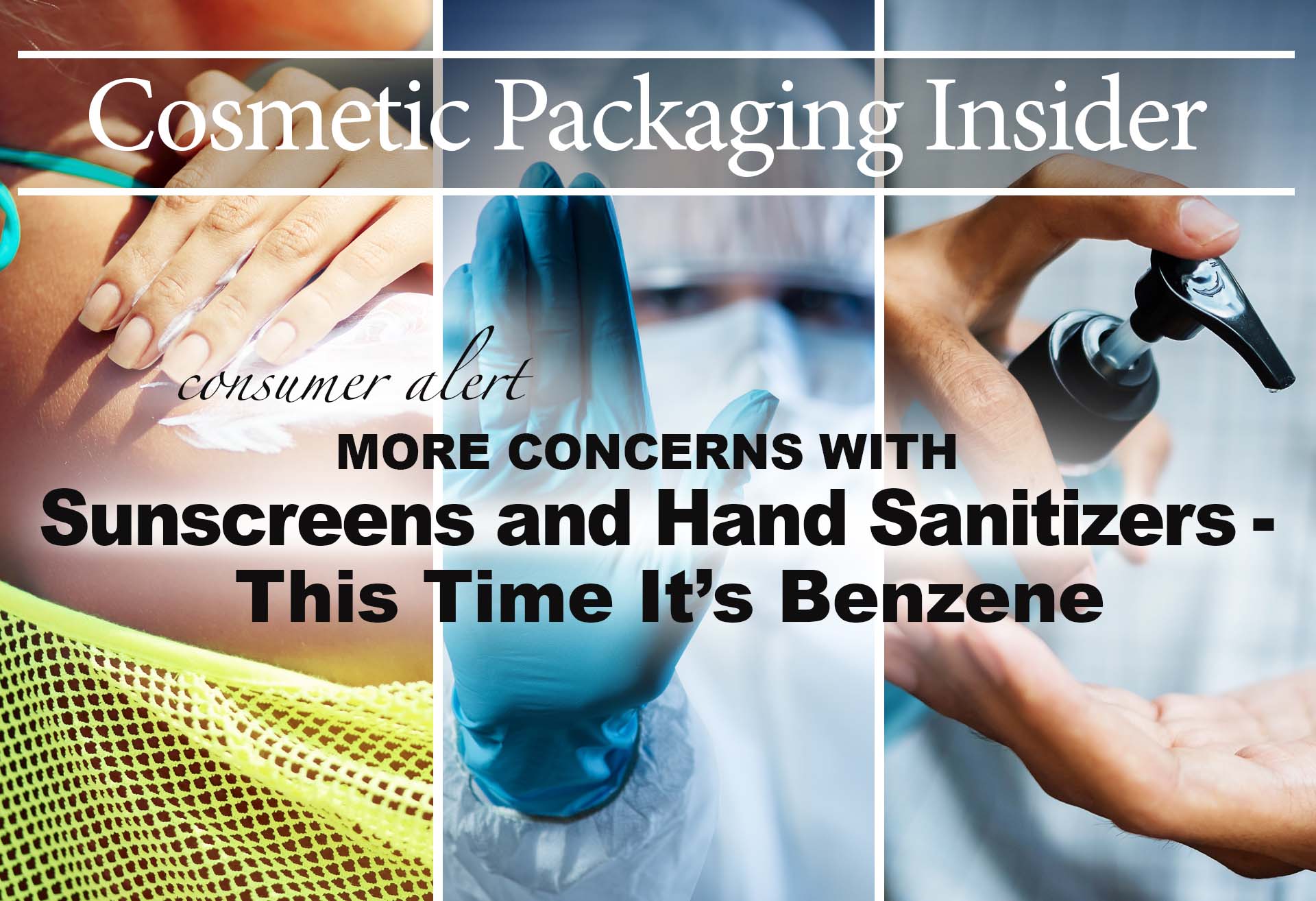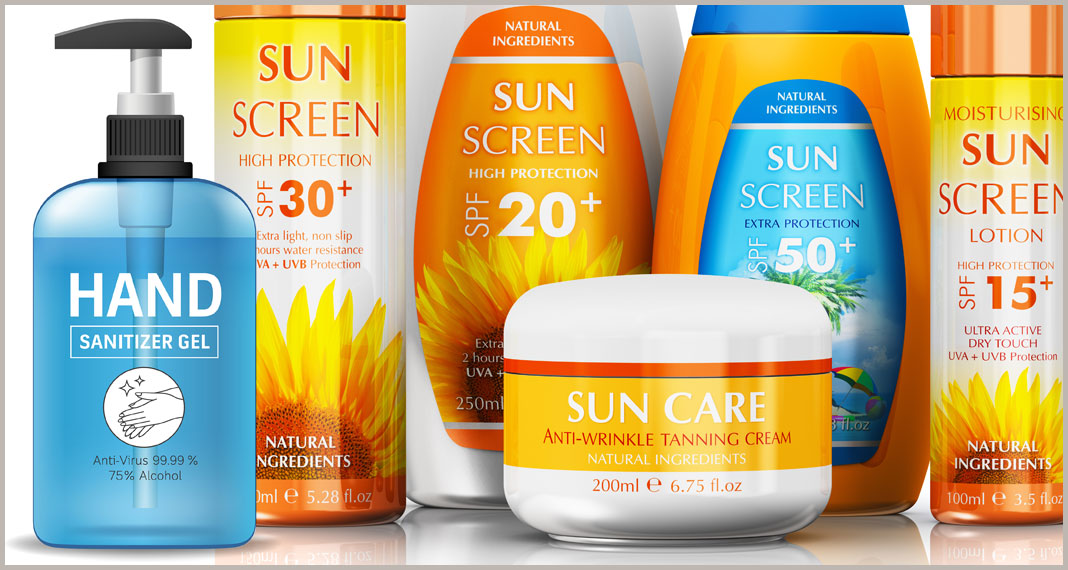
Your online cosmetic and personal care product packaging resource!
“Benzene is a sweet-smelling, colorless, flammable liquid that evaporates rapidly when exposed to air.”


osmetic Packaging Insider has previously reported on safety concerns with both sunscreens and hand sanitizers. Unfortunately, both product categories are under the spotlight again. The issue this time? The known carcinogen benzene.
Online pharmacy and testing laboratory, Valisure, sounded the alarm bells in late March that it had discovered benzene in a number of hand sanitizer lots that it tested. In late May, Valisure announced that the same chemical was discovered in batches of sunscreens and after-sun products it tested.

Benzene is a sweet-smelling, colorless, flammable liquid that evaporates rapidly when exposed to air. It can be formed as a result of natural processes, such as volcanic eruptions and wildfires. Benzene can also be found in significant concentrations in gasoline and other petroleum products, as well as cigarette smoke. The Environmental Protection Agency (EPA), and other expert agencies, have classified benzene as a known human carcinogen. The cancers most often associated with benzene exposure include leukemia and other hematological cancers, particularly Acute Myeloid Leukemia (AML). Most high-level exposures to benzene occur due to man-made processes and in the workplace. In addition to cancer, exposure to benzene can cause other hematological disorders, including anemia. Benzene can also exert toxic effects on the nervous system.
Regulatory agencies have set limits on benzene exposure for both the workplace and the environment. For example, federal OSHA limits for workers is 1.0 parts per million (PPM) of benzene in the air per 8-hour shift. The EPA has set a standard in drinking water of 5.0 parts per billion (PPB), with some state agencies requiring an even lower limit of 1.0 PPB for drinking water. Due to pandemic related supply shortages, the FDA set an emergency use limit of 2.0 PPM of benzene in liquid hand sanitizers, with no allowable benzene in other hand sanitizer products, such as gel, or in sunscreens and after-sun products. Users of these products can absorb benzene through the skin, or inhale benzene that evaporates from the product while it is applied to the skin.
While there is no question that benzene exposure at high levels, or at lower levels for long periods of time can cause cancer, or other ill health effects, it is important to put the risk in perspective. For example, the EPA estimates that if a person drinks water containing 10.0 PPB, or inhales air containing 0.4 PPB of benzene over his/her lifetime, the additional cancer risk would be 1 in 100,000, or 0.001% . Compared to the average lifetime cancer risk of about 25% for the average person, the additional risk posed by this level of benzene exposure is small. However, the level of benzene in contaminated products was in parts per million (PPM), which would be over a thousand times greater than the parts per billion (PPB) standard set for these estimates. These estimates are just that, as no one can predict an individual’s susceptibility to a particular carcinogen, and many scientists say there is no safe level of benzene exposure.
The bottom line is that, regardless of the exact level of risk, most of us do not want to use products containing elevated levels of known carcinogens, and we certainly do not want our children exposed to these products. If you are concerned that you may have used a contaminated product, you can ask your doctor about your specific risks. After that, you can address the next question to the manufacturer of the contaminated product that you used – how did the benzene get in the product in the first place? That is the real issue, and until consumers demand transparency and rigorous safety testing across the board, things like this will keep happening. September 2021
C O S M E T I C P A C K A G I N G I N S I D E R
Your online cosmetic and personal care product packaging resource!



